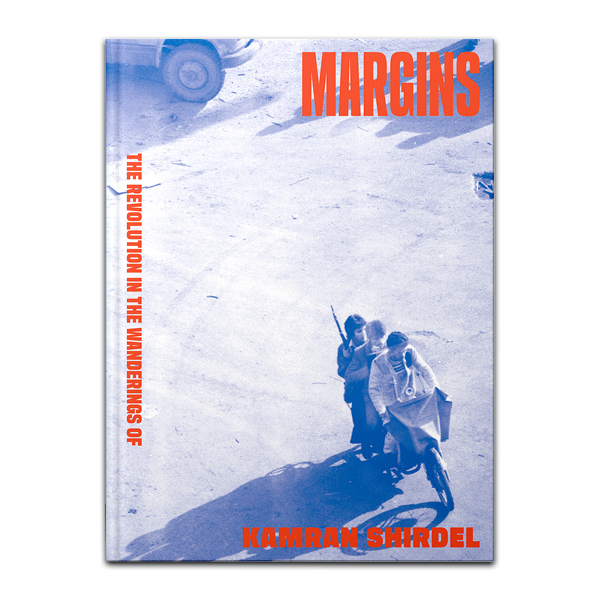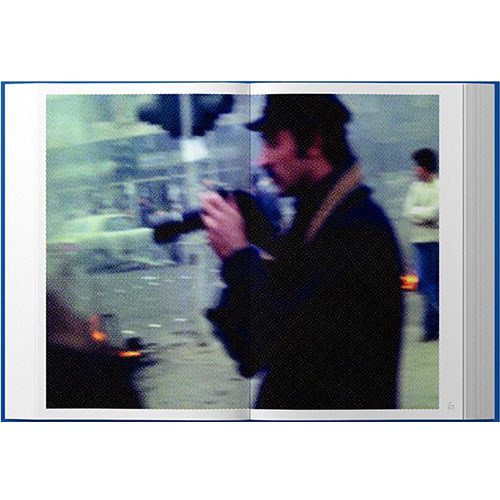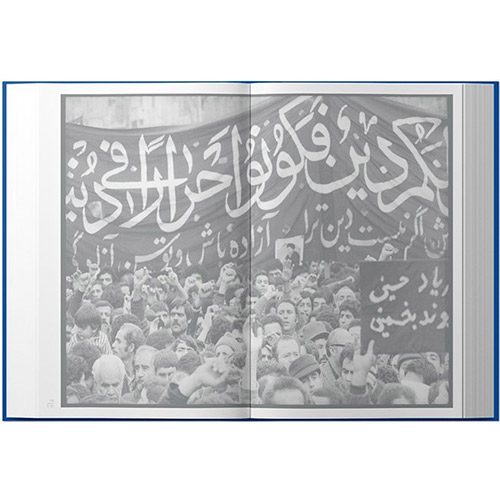Margins; the revolution in the wanderings of kamran shirdel
Kamran Shirdel
Publisher: Nabshi Center
To place your order, please click / tap here +98 935 5596278 or call if needed.
Kamran Shirdel (b. 1939, Tehran, Iran) is a pioneering figure of the Iranian new cinema and the founder of Iran’s sociopolitical documentary school of filmmaking and best known for his movies: “The Night It Rained”, “Qal’ eh” [“The Women’s Quarter”], “Peykan”, and “Tehran Is the Capital of Iran”. He was born in 1939 in Tehran. In 1957, he started studying Architecture and Urbanism at the University of Rome, and in 1962 he became the first Iranian student to study Film Direction at Centro Sperimentale di Cinematografia of Rome, graduating in 1964 with a degree in Film and Television Directing. As a forerunner of the Iranian documentary cinema, and much like his mentor, Michelangelo Antonioni, Kamran Shirdel has always been presenting his own interpretation of reality in his commissioned and self-produced documentaries, challenging his audience to face a difficult question concerning the nature of an event. As the first Iranian filmmaker who has made use of photographs as inserts in his works, Shirdel has shot the photographs of “which was not commissioned by a specific broadcasting company or news agency-only as inserts for a documentary film. All of these photos were shot in his wanderings in Tehran during the days that led to the Iranian Revolution.
As a forerunner of the Iranian documentary cinema, and much like his mentor, Michelangelo Antonioni, Kamran Shirdel has always been presenting his own interpretation of reality in his documentaries, challenging his audience to face a difficult question concerning the nature of an event. However, his commissioned and self-produced works, even those that were made as industrial documentaries, have been caught in a web of political considerations, which has in turn made them into significant documents of the Iranian contemporary society. As the first Iranian filmmaker who has made use of photographs as inserts in his works, Shirdel has shot the photographs of this project—which was not commissioned by a specific broadcasting company or news agency—only as inserts for a documentary film. All of these photos were shot in his wanderings in Tehran during the days that led to the Iranian Revolution. Now we see Kamran Shirdel’s photographs independent of his films, not as historic sociopolitical documents, but as a micro-narrative on the margins of the larger context of the Revolution, next to the dailies that were never made into films. Publication of the book is timed to coincide with “Margins: The Revolution in the Wanderings of Kamran Shirdel” exhibition held in Nabshi Center in November 2018.
Book Specification:
Dual-language
Format: Hardcover
Size: 32.2 x 23.5 cm
Writing paper
Extent: 251 pp



